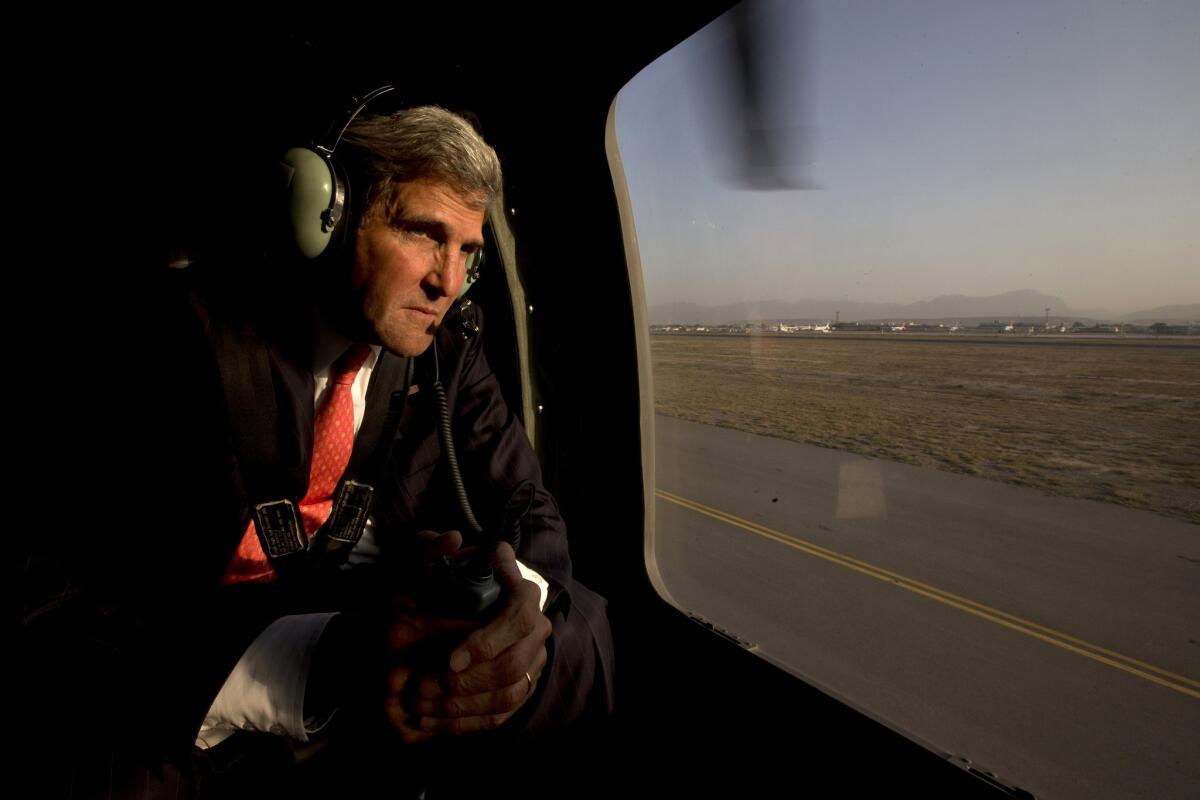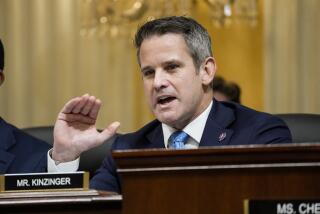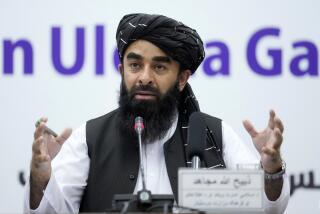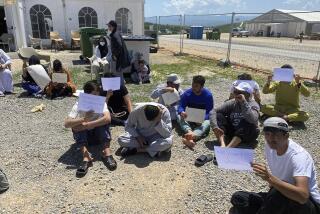Kerry makes urgent trip to Kabul as security pact deadline looms

Secretary of State John F. Kerry made an unannounced visit to Kabul on Friday to press Afghan President Hamid Karzai to work out the last, divisive details of a proposed U.S. military presence in Afghanistan after the 2014 withdrawal of NATO forces.
The Bilateral Security Agreement that has been under negotiation for a year must be completed by the end of this month, both sides agreed in January, to allow the United States and its allies time to secure the facilities they would need and outline the foreign troops’ responsibilities and restrictions.
The deal that might keep as many as 10,000 U.S. troops in Afghanistan beyond next year is stuck on the contentious issue of how much latitude the foreign forces would have in pursuing terrorist suspects in the country. From the Afghan side, Kabul has demanded written assurances that U.S. troops will come to Afghanistan’s aid if it is attacked after the withdrawal -- a military commitment the Obama administration seeks to avoid as it would require approval by a bitterly divided Congress.
Two senior State Department officials traveling with Kerry briefed reporters on board the secretary’s plane as it headed for Kabul at the end of a nearly two-week Asian trip. A transcript of the briefing was distributed to media by the State Department’s press office.
“In any negotiation with any country where there are tough issues, the sticking points almost always, if not always, come down to the end, and that’s the point we’re at now,” said one of the senior diplomats, describing the post-2014 security pact as 95% done.
But the officials sought to downplay expectations that Kerry’s visit would clear away the tough, final obstacles. They said the visit was aimed at spurring the talks from their current impasse but that the completed pact would probably come from the negotiators who have been working on it for the last year.
“The reason we’re focused on October is not arbitrary,” one official said, explaining that the United States and NATO need to know now what to prepare for after their current mandate expires next year.
The urgent visit to Kabul was agreed upon in an Oct. 5 phone call between Kerry and Karzai, the officials said, in hopes of resolving the standoff that has evolved over U.S. demands for post-withdrawal authority that Afghans consider an infringement on their sovereignty.
The disagreement has apparently taken on fresh acrimony with the arrest and detention last week of a senior Pakistan Taliban commander while he was traveling in Afghanistan’s Logar Province.
Latif Mehsud, a senior deputy to Pakistani Taliban leader Hakimullah Mehsud, was captured by U.S. forces on Oct. 5 -- the same day Kerry called Karzai to arrange the Friday visit. Karzai had previously lashed out at U.S. counter-terrorism operations carried out in Afghanistan without what the president considers proper coordination of the host country, and Mehsud’s seizure has reportedly intensified Karzai’s ire.
Pentagon public affairs officials in Washington, to whom all inquiries on the reported capture have been referred, have declined to comment.
Pakistani intelligence officials said U.S. forces seized Mehsud while he was accompanied by Afghan army troops, and that they don’t know where he was taken, the Associated Press reported from Kabul.
Mehsud’s capture is typical of the blurred lines of authority between NATO’s 87,000 troops of the International Security Assistance Force -- 52,000 of them Americans -- and the Afghan army and police forces built up in recent years to take over their nation’s security after the foreigners leave.
The disagreement over foreign troops’ post-2014 authority comes at what State Department officials described as a “pivotal point” in Afghanistan, as Karzai’s term as president expires in April and the campaign to succeed him is about to go into full swing. The presence and behavior of foreign troops is expected to be a major issue among contenders attempting to appeal to Afghans’ powerful aversion to occupation and Western domination.
Karzai, who has exhausted his constitutionally limited two terms as president, has called a meeting next month with tribal leaders from throughout Afghanistan to seek consensus on what form of foreign military presence would be acceptable after 2014. But that guidance will come too late for the security agreement that Washington has said must be in place by Oct. 31 if any U.S. troops are to be committed to Afghanistan beyond next year.
The U.S. diplomats aboard Kerry’s plane were asked whether the secretary would warn Karzai against trying to position an ally or relative to succeed him, or perhaps seek some way of running for a third term despite the current legal limits.
“This is an Afghan domestic process, and it would be unlikely at this point that the secretary would weigh in” on the substance of the campaign, one of the officials replied.
A separate State Department press release said Kerry would leave Kabul on Saturday for visits to France and Britain.
ALSO:
OPCW wins Nobel Peace Prize; group struggling to disarm Syria
Myanmar talks with Kachin rebels yield agreement but no cease-fire
African Union official attacks ‘condescending’ International Criminal Court
Twitter: @cjwilliamslat
More to Read
Start your day right
Sign up for Essential California for news, features and recommendations from the L.A. Times and beyond in your inbox six days a week.
You may occasionally receive promotional content from the Los Angeles Times.







